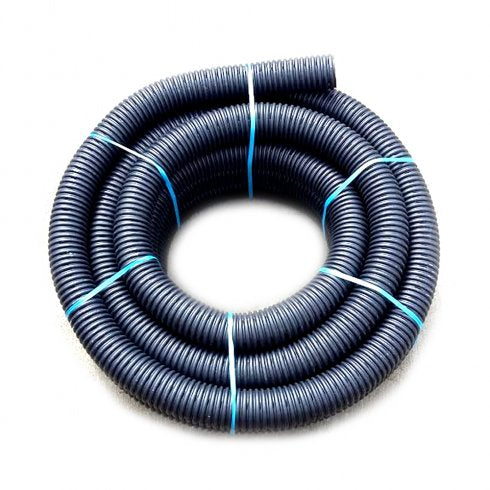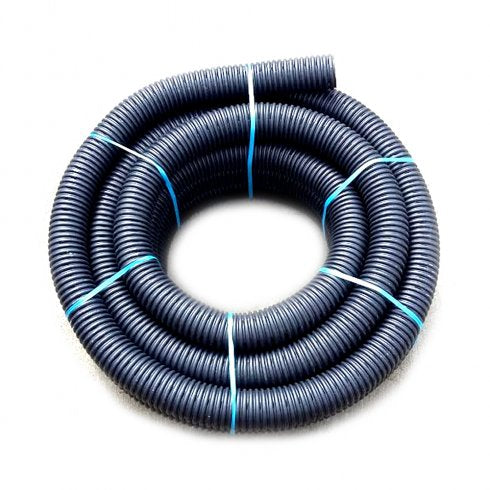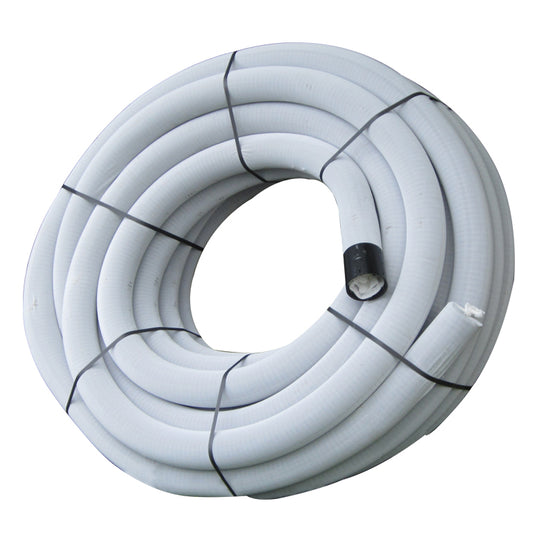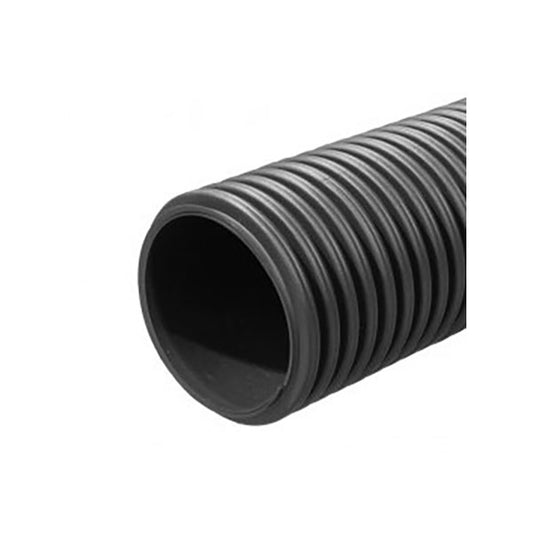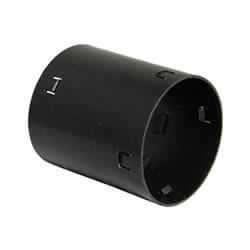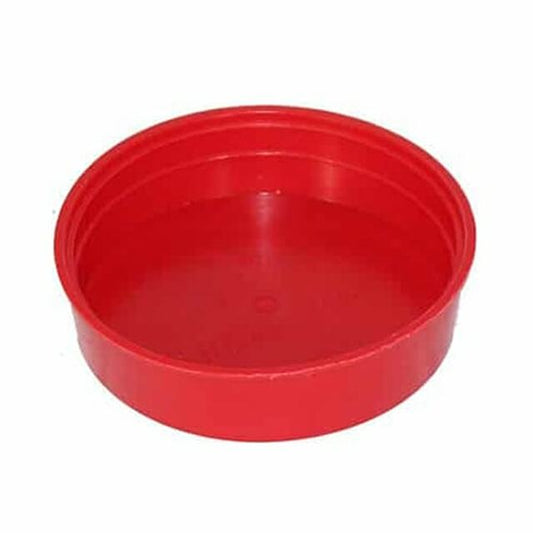So, you’re looking to prevent a sports field from becoming waterlogged or perhaps you want to boost your crop yields — but you’re unsure which land drainage product to install. Should you use land drainage coil or twinwall pipe?
We’re asked this question a lot. Both products are designed to prevent excess water build-up, but choosing the right one for your application is crucial. While they serve a similar purpose, they’re structurally very different and perform best in different situations.
What Is Twinwall Pipe?
Twinwall pipe is exactly what the name suggests — two HDPE plastic walls welded together. The outer wall is corrugated for strength, while the inner wall is smooth to ensure efficient water flow. Depending on whether it’s perforated or unperforated, it’s also known as a filter drain or carrier pipe.
The key difference between twinwall pipe and land drainage coil is rigidity — twinwall pipes are strong, heavy and inflexible. The larger the diameter, the more structural support they provide for the surrounding ground.
Common applications:
- Culvert crossings
- Watercourse piping and surface water removal
- Large yards, car parks, and infrastructure projects
What Is Land Drainage Coil?
Land drainage coil, also known as land drainage pipe, is a single-wall HDPE pipe supplied in long, flexible coils. It can be either perforated (for water collection) or unperforated (for water distribution).
The biggest advantage of land drainage coil is that it’s lightweight and easy to handle, making installation faster and more efficient. It’s also ideal for use in long, continuous runs where flexibility is required.
Common applications:
- Sports field drainage
- Agricultural land drainage
- Soil stabilisation and water table management
Get Expert Advice
Choosing between twinwall pipe and land drainage coil depends on your site, soil, and purpose. Our team of specialists can help you select the right solution for your application — whether it’s field drainage, sports turf, or infrastructure projects.
Call us today on 0121 351 3230 to speak to a land drainage expert.
Alternatively, fill out our enquiry form:






